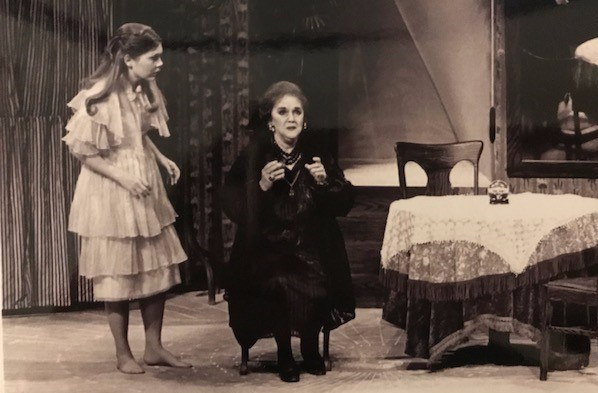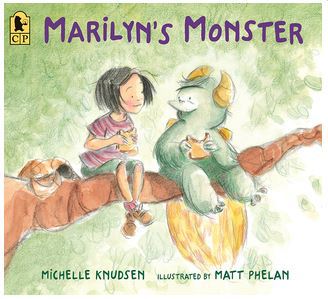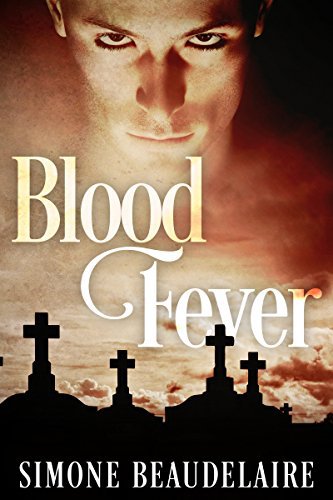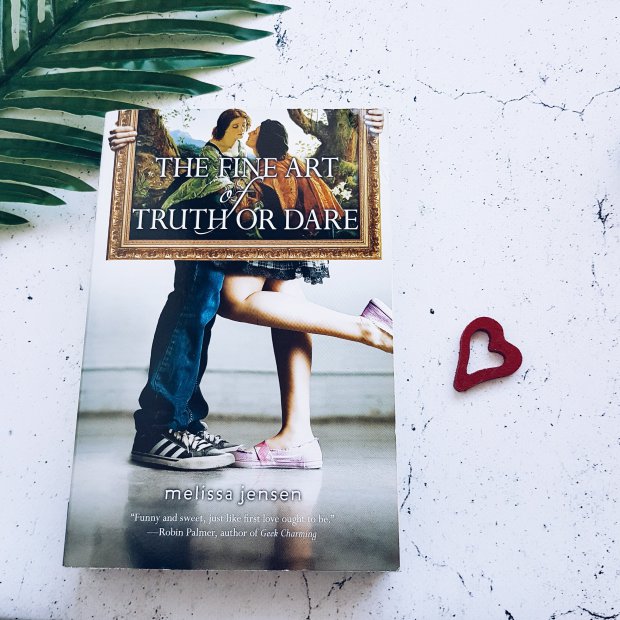Friends,
I recently chatted with soprano Karen Holvik whom I first met in the fall of 1980, my first semester in Jan’s studio. I was eighteen; Karen had just completed her graduate degree the spring before and was headed to her first opera gig at Western Opera Theater. She lived in Rochester that fall, waited on tables, took lessons, and attended our studio classes.
I remember her round, open face. Wide eyes and mouth. I remember hearing about Karen, her successes, her singing. About how she starred with Jan in The Medium at the Aspen Music Festival. I knew then that she was special and that Jan loved her.

Soprano Karen Holvik and Jan DeGaetani in The Medium
Hers is an interesting path from student to singer of opera and voice teacher. She’s taught at Eastman and has been the Chair of the voice department at New England Conservatory for nearly ten years. She started out in the early 70’s singing jazz and writing songs for the rock band she fronted. They’d been successful: recorded and toured for years. Her mother, a musician (she and Karen’s father met at Eastman!) eventually convinced Karen to study seriously, to train. Karen studied with John Molloy at Eastman and Jan at Aspen. She remembers the moment she knew she had to give up the jazz and gigging. (She’d been earning her keep singing in Rochester clubs.) During her second year at Eastman, she was cast in the lead of an obscure Donizetti opera and found it harder and harder to switch styles as she learned the role. Her body had undergone rigorous training to sing classical music; it was changing, and she knew her singing was suffering. Of course, it was Jan who listened to Karen as she made the decision.
It was also Jan who valued Karen’s jazz singing (she and Phil went to Karen’s gigs in Rochester), and used this to guide Karen into the context of singing classical music.
Her first summer as Jan’s student in Aspen, Karen was attempting to sing Après Un Rêve during a master class, and she couldn’t get out of her own way, she says. She was really struggling. Jan told her to come to class the next week prepared to sing the song as if it were a jazz tune, unaccompanied. This simple idea was a game changer for Karen. As she says, Jan knew how to get her to connect with what made her a singer and gave her permission to be this way, exactly as she was, to sing her true self.
Jan knew the cost of Karen’s decision, and she also helped Karen remember she’d never leave it behind. It was as much and always a part of her musician self as this new classical music.
Life Lessons, Karen calls them. The moments when Jan’s wisdom changed her, stories she tells her own students now. Many times, Karen says, she hears something coming out of her mouth during a lesson and looks up, whispering, Thank you, Jan.
I think about how I’ve grown into a teacher of writing. Of how I read what’s on a student’s page and look for what’s not. For what’s underneath the typed line. For what wants to be there. For the hint of the human being reaching for something. And then I try to suggest ways for the writer to take another step. A next step. I end my conferences asking, Do you have a sure way to get back to work now?
Jan taught me how to be a teacher. I tell Karen my top two Jan Life Lessons: First, pay attention and be a student of myself. Second, trust my thinking. Over the years, every single time I asked my growing son, “What’s your best thinking, honey?” I may not have raised my eyes or whispered under my breath, but Jan was with me nonetheless. This useful, empowering approach came from somewhere. It came from Jan.
Share this:





